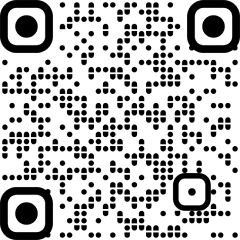
By Shalini Bhardwaj
New Delhi: The recently released Union Health Ministry’s “Guidelines for Withdrawal of Life Support in Terminally ill Patients” was the result of joint brainstorming by as many as 25 doctors from across India and defines “terminal illness” as an “irreversible or incurable condition from which death is inevitable in the foreseeable future.”
Speaking with ANI, Dr. Sushma Bhatnagar, Chief IRCH Cancer, AIIMS, Delhi said that it is not active or passive euthanasia, rather, “it’s a way of giving treatment when the end is inevitable”
She further said, “Almost 25 doctors were involved. It took multiple meetings and brainstorming and doctors from all over India. This is a welcome step by the government of India.
Dr Bhatnagar said that while all sorts of technological advancements can be used for someone who can be cured, no one has taught doctors what to do when the end is inevitable.
“In medicine, we all have learnt how to diagnose and how to treat but no one has taught us what should be our approach when end is inevitable. Thus we keep treating a person even if we know that there is no chance of recovery. Thus we keep treating a person and finally person ends his life away from his or her loved ones in ICU with all sorts of technological advancements which we could have used for someone who can be cured,” she said.
“By implementing this policy, there will be major advantages, there will be better understanding of diagnosis and prognosis. Patients and family members will be able to make informed choices. End, which is inevitable in certain circumstances will be dignified which we all deserve. We will be able to follow all four principles of medical ethics, where autonomy will be important, we will do everything which is useful for the patient but will not do anything which will prolong his suffering,” she explained.
Dr Bhatnagar further said, “We will be able to utilise our resources judiciously. Finally, we will reduce the financial toxicity of inappropriate treatment on common Indians.”
In mid-October, AIIMS Delhi is organising a special session. “We are keeping a session on advance directives and living will where we start explaining patients and their relative long time before this planning. We are keeping this on October 15, at JLN Auditorium, AIIMS.”
Dr Bhatnagar further informed that doctors are not taught regarding this aspect so she is trying to get integrated in UG/PG curriculum, “They have not been taught this aspect of medical since in their UG/ PG curriculum.”
The draft guidelines issued by the Union Health Ministry for withdrawal of life support in terminally ill patients states that it should be based on “considered decision” taken by doctors on withdrawal of life support in terminally ill patients based on certain conditions.
“A considered decision in a patient’s best interests, to stop or discontinue ongoing life support in a terminally ill disease that is no longer likely to benefit the patient or is likely to harm in terms of causing suffering and loss of dignity.” it reads.
According to the draft guidelines the withdrawal includes four conditions, a) any individual declared brainstem death as per THOA Act. b) Medical prognostication and considered opinion that patient’s disease condition is advanced and not likely to benefit from aggressive therapeutic interventions c) Patient/surrogate documented informed refusal, following prognostic awareness, to continue life support d) Compliance with procedure prescribed by the Supreme Court.
The draft “Guidelines for Withdrawal of Life Support in Terminally ill Patients”, also states that doctors should not consider the decision to not start a life supporting measure in a terminally ill patient that is unlikely to harm in terms of suffering and loss of dignity.
“A considered decision in a patient’s best interests, to not start a life supporting measure in a terminally ill patient, that is unlikely to benefit the patient and is likely to harm in terms of suffering and loss of dignity,” it said.
It explains further that in such situation, three conditions on whether the individual has been declared brainstem death, if there is a medical prognostication and considered opinion that the patient’s disease condition is advanced, individual declared brainstem death as per THOA Act and Patient/surrogate documented informed refusal, following prognostic awareness, to continue life support has been mentioned in the draft.
The Union Ministry has invited feedback and suggestions by the mid of next month.
On the draft guidelines Dr Asokan, President, IMA said, it is actually passing stress to the doctors. “All these things are done day to day basis, they are already being done by the clinicians. This responsibility is shared between the patient, relatives and the doctors in every single case, and the medical profession has been doing this responsibility, yes, but this differs from case to case, it is always based on trust, and the communication with the patient relatives because actually the decision is made by the Patient relatives. Doctors only enable them by sharing scientific information, clinical situation and other things.”
Dr Asokan said after they will submit their views after scrutinising the documents.
Dr Rajeev Jayadevan, Past President, IMA Cochin said, “ICU care is necessary in many instances where patients have life-threatening conditions. This could range from heart attack, stroke, liver failure, road trauma, pneumonia or snakebite. The presence of expert doctors, staff and life support equipment make the ICU a place where even severely ill patients can recover. That being said, there is a point beyond which such support measures do not make a difference, for instance in some patients with terminal cancer or advanced dementia in a bedridden person.”
“These measures are not only expensive, but also in limited supply and therefore must be reserved for those who will benefit the most. Guidelines to withhold or withdraw aggressive treatment measures are helpful for both doctors and patients’ families while facing difficult decisions,” said Dr Rajeev Jayadevan. (ANI)







